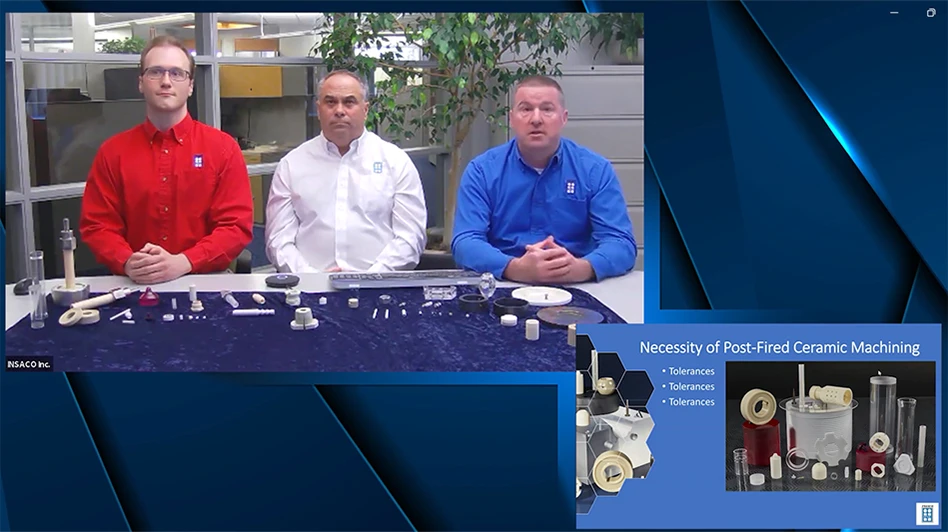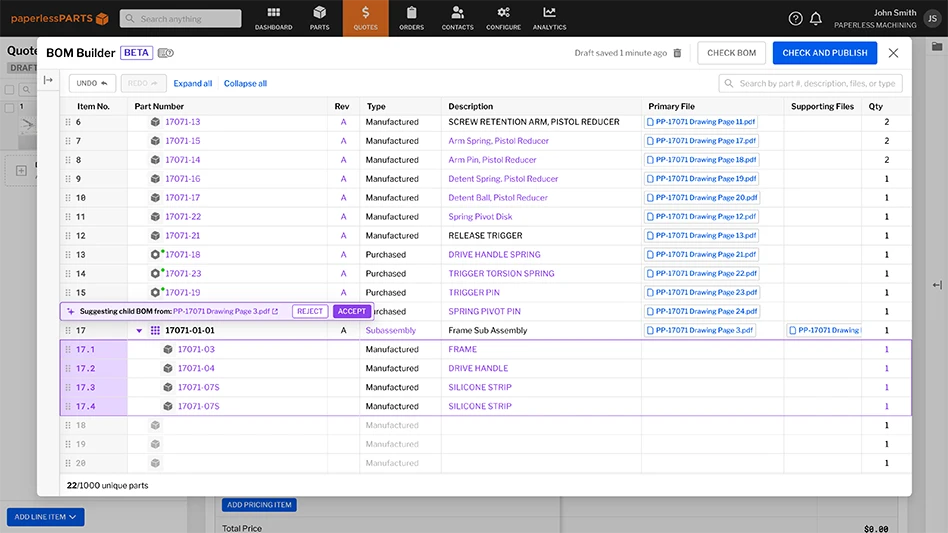
EModic@gie.net
Artificial intelligence (AI) can be found throughout the medical device industry – from data management and remote surgery to diagnostics, wearables, and more. Found in an ever-expanding number of connected medical devices, AI, together with machine learning (ML) has moved the medtech industry forward in digital health, making it more accessible to patients and facilities.
Beyond medical devices, AI and ML are also used to improve medical device manufacturing processes and reduce risk. AI accelerates design, prototyping, and testing of new medical devices. AI helps take design iteration time from weeks to just hours. Additionally, using AI and ML within automation and inspection systems increases efficiency and can find potential defects early in the manufacturing process so final medtech devices are defect-free.
Adherence to regulatory requirements for medical devices is also accelerated with AI. Whether adhering to the U.S. FDA or EU regulatory standards, AI can streamline compliance through automation of process documentation and can track compliance at every stage of production. This minimizes time spent on regulatory tasks, can detect issues in advance and help remedy them, and can reduce the chance of non-compliance.
While analysts suggest using AI in research & development (R&D) can significantly reduce time-to-market while lowering costs for new technologies, companies need to be prepared with a workforce that’s ready to embrace AI. PwC’s “2025 AI Business Predictions” article sums their six predictions saying: “Your company’s AI success will be as much about vision as adoption… It’s now clear that AI can deliver value at scale… Nearly half (49%) of technology leaders in PwC’s October 2024 Pulse Survey said AI was ‘fully integrated’ into their companies’ core business strategy. A third said AI was fully integrated into products and services.
“Making AI intrinsic to the organization is vital, because making big is only one source of game-changing AI value. The other is the cumulative result of incremental value at scale: 20% to 30% gains in productivity, speed to market, and revenue.”
According to the latest report from Precedence Research, the global AI market was $538.13 billion in 2023, will be near $638.23 billion in 2024, and is expected to grow to around $3.68 trillion by 2034, expanding at a compound annual growth rate (CAGR) of 19.1% from 2024 to 2034.
As you read this issue you’ll notice AI is mentioned often – from the MedTech MindSet column to thoughts from various contributors in our 2025 Forecast. While AI has been a buzz word for the past few years, the benefits AI can deliver to any size operation or medical device show how it’s transforming everything from manufacturing to the end product.
How have you implemented AI?

Explore the January/February 2025 Issue
Check out more from this issue and find your next story to read.
Latest from Today's Medical Developments
- North America's supply chains face sharp decline due to tariffs
- Experience precision: GF Machining Solutions' CUT F Series wire EDM
- Mastering high-temp alloys with Kennametal Inc.
- Integer expands operations in Salem, creating 83 jobs
- Siemens unveils new Teamcenter X: Revolutionizing SaaS PLM for all manufacturers
- 3 Questions with an Expert with Allied Machine & Engineering
- Supply Chain Power – A strategic program for executives
- Sunnen Products' PGE-6000 gage





